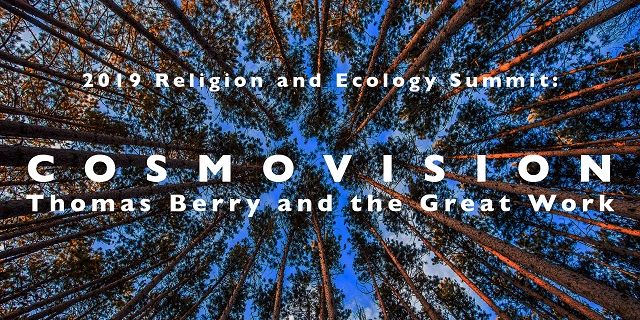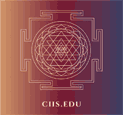Carl Anthony: “The Earth, the City, and the Hidden Narrative of Race”
In this talk, Carl Anthony will discuss his book, The Earth, the City, and the Hidden Narrative of Race (New Village Press, 2017). This book interweaves urban history, racial justice, and cosmology with personal experiences as an architect/planner, environmentalist, and Black American. By connecting the struggles for social and racial justice to the universe story, it creates new story for our time.
Drew Dellinger, PhD: “The Most Radical Thing a Person Can Think About”
The universe, Thomas Berry once said, “is the most radical thing a person can think about.” Drawing on interviews with Berry throughout the 1990s and 2000s, this talk will explore his cosmological vision, his approach to worldview, story, and narrative, and his conceptions of the Universe Story, the Earth Community, and the Great Work. This talk will also engage social and political dimensions of cosmology as a link between ecological and social justice issues.
Rev. Matthew Fox, PhD: “Mantras From Thomas Berry That Inspire & Challenge”
This talk expresses gratitude for Thomas Berry's many prophetic teachings. We will attempt to do so by offering phrases or mantras from Tom that can move mountains. And must if our species and others are to survive on a planet in peril.
Osprey Orielle Lake, MA: “Flaring Forth in the Anthropocene: A fierce and passionate impulse for cosmovision, and social and ecological justice”
A fourfold wisdom has been described by Thomas Berry as the framework for advancing the human project for a sustainable future. Berry says: “In these opening years of the twenty-first century, as the human community experiences a rather difficult situation in its relation with the natural world, we might reflect that a fourfold wisdom is available to guide us into the future: the wisdom of indigenous peoples, the wisdom of women, the wisdom of the classical traditions, and the wisdom of science.” These wisdoms hold keys to a cosmovision for this tumultuous era. In this presentation, I will focus on two of the wisdoms, Indigenous peoples and women, as well as knowledge from the global climate justice and rights of nature movements as we delve further into the Great Work of our time—a time of peril and potential promise.
Elizabeth McAnally, PhD: “Loving Water across Religions: Thomas Berry’s Inspiration for an Integral Water Ethic”
Thomas Berry’s vision of the universe as a communion of subjects, not a collection of objects, has been one of the primary inspirations for the development of what I call an “integral water ethic.” Such an ethic promotes a view of water as a loving being who plays an integral role in the Earth community – a sacred source of life, not a resource to be exploited, commodified, and polluted. This talk explores these themes as developed in my recently published book, Loving Water across Religions: Contributions to an Integral Water Ethic (Orbis Press, 2019).
Robert McDermott, PhD: “Thomas Berry: Personal Reflections”
This talk will attempt to characterize the life, thought, and influence of Thomas Berry, historian of cultures and religions, prophet of the New Story, geologian, planetary person, a Stoic man of sorrows, and an enduring inspiration.
Sam Mickey, PhD: “Reinventing the Human, Reinventing Technology”
This presentation explores possible roles for technology in our time of global environmental crisis. Berry’s cosmological vision provides an alternative to the predominant views on technology today, such as those of transhumanists who believe that technological development will enable humans to transcend the biological constraints on the human condition, techno-optimists who believe that the only way to solve problems created by modern technological development is with more technological development, and localists who criticize technology and promote small-scale, place-based lifestyles as the only viable path for humanity. Rather than simply promoting or critiquing technological development, Berry gestures toward a radical transformation of the very idea of technology, providing a comprehensive evolutionary and religious context that opens up new ways of responding to the complex relationship between technology, humankind, and the natural world.
Toni Nash, CSJ, PhD: “Creating a New Language for a New Story”
As we seek to integrate the New Universe Story into our daily lives, we need new images that accurately capture the universe as we now know it, how we got here, and what we humans are to do – clear images that reflect our new consciousness, guide us in daily choices, correct dysfunctional thinking and behavior, and reinvent us as a derivative species of the Earth community. In a recent critical analysis of the “new story” movement, Lisa Sideris claims that the way we are telling the new story gives too much emphasis to science and is overtly human-centered and human-exalting. If this is true, we have failed to communicate the story as a sacred one that challenges our anthropocentric and anthropic bias and demands interdependent behavior that is aligned with Earth’s evolutionary processes. How can we image the new story in such a way that it is unambiguous, immediately accessible, and easily embodied in our daily lives? Might we sit around the fire and retell the story of our origins to each other until new images come to us that fully capture our new experience of the Universe?
Devin O’Dea: “Dynamizing Functional Cosmology for a Flourishing Future”
The works of Thomas Berry, Brian Thomas Swimme, and Mary Evelyn Tucker have provided us with a story of the universe that is both grounded in science and animated by the insights of the humanities. In doing so, they have articulated a thorough account of what Thomas Berry called a “functional cosmology.” What is our role in the stewardship and communication of this knowledge? How might we dynamize the story we have inherited and contribute to its further functioning throughout our collective culture? Given the opportunities of modern technology, can we discover effective strategies to orient and share this story such that individuals of all social, economic, and educational levels can connect? In addition to exploring the concept of “functional cosmology” and its embodied forms in Journey of the Universe, The Universe Story, and other related works, we will consider how functional cosmology might be communicated to the general public in a manner that generates value and energy that further drives the dissemination of the great story of our time.
Steve Snider: “It Takes a Universe to Educate a Child: The Influence of Berry’s Work on Young People”
This brief talk outlines my intellectual and spiritual journey from early childhood in the 1970’s through young adulthood in the 1990’s leading to the discovery of the New Cosmology and the work of Thomas Berry. With a special emphasis given to three areas of inquiry: 1) how early childhood experiences influence the passions and interests of our adult lives; and 2) how the philosophical exploration and spiritual intuitions of a young inquisitive mind can be supported and validated by the interrelatedness and non-duality presented in the work of Thomas Berry; and 3) how Thomas Berry’s work and the New Cosmology can become a blueprint for education and social transformation.
Brian Thomas Swimme, PhD: “I'm Having Coffee with Pythagoras”
In celebration of the landmark publication of Thomas Berry's biography by Mary Evelyn Tucker and John Grim, my talk will be a reflection on how it was that Thomas Berry's presence changed one's life. Certainly that was what happened for Mary Evelyn, John, myself, and many others. The above title was my first attempt at understanding when I met Thomas thirty-seven years ago. Listening to him was to be transported. We found ourselves catapulted into archetypal realms. Suddenly you knew exactly what you had to do with your life. As this was happening to me, I thought of Pythagoras, that great sage of the ancient world whose spiritual impulse would develop into so much of Western philosophy and science. I felt certain that the deep joy and wonder filling my soul were similar to what the students in Pythagoras’s mystery school must have experienced twenty-six hundred years ago. I would now say, in addition, that Thomas was giving birth to a new order of human being, one rooted in classical spiritualities, but one reaching back into the shamanic worlds and vaulting forward into scientific understanding. The human journey was undergoing a seismic shift. Thomas was aware of this, and of his role in this transformative process.
Mary Evelyn Tucker, PhD: “Writing A Life Story”
What does it require to tell another’s story? What is left out? What is kept in? How do we choose? These and other questions arose in trying to tell Thomas Berry’s story. This talk will reflect on the challenges of composing Thomas’s biography over many years. We will consider how this work may contribute to his legacy. In the process, we will also ponder the nature of story-telling in our times.
Subscribe to RSS Feed (Opens in New Window)


